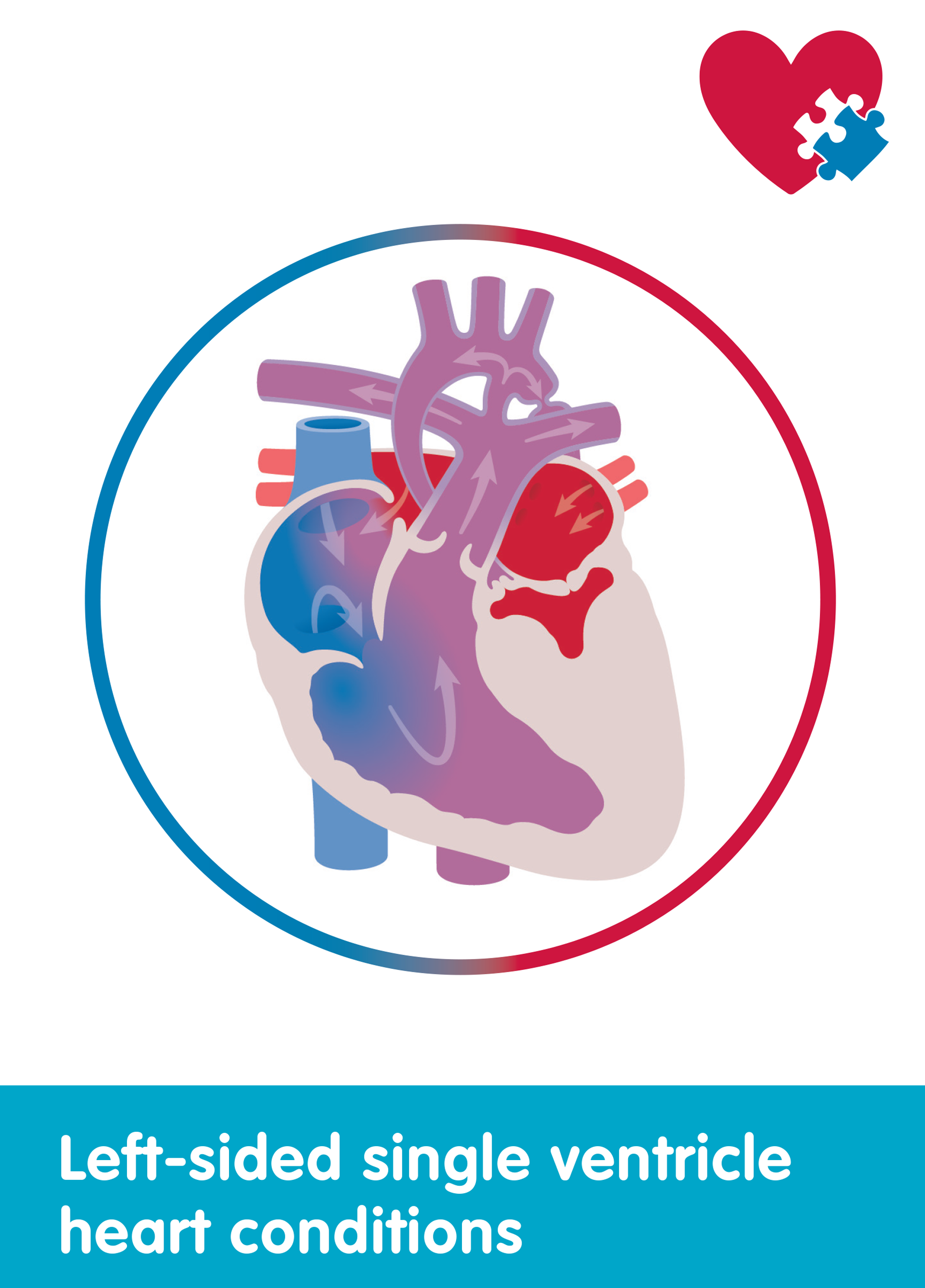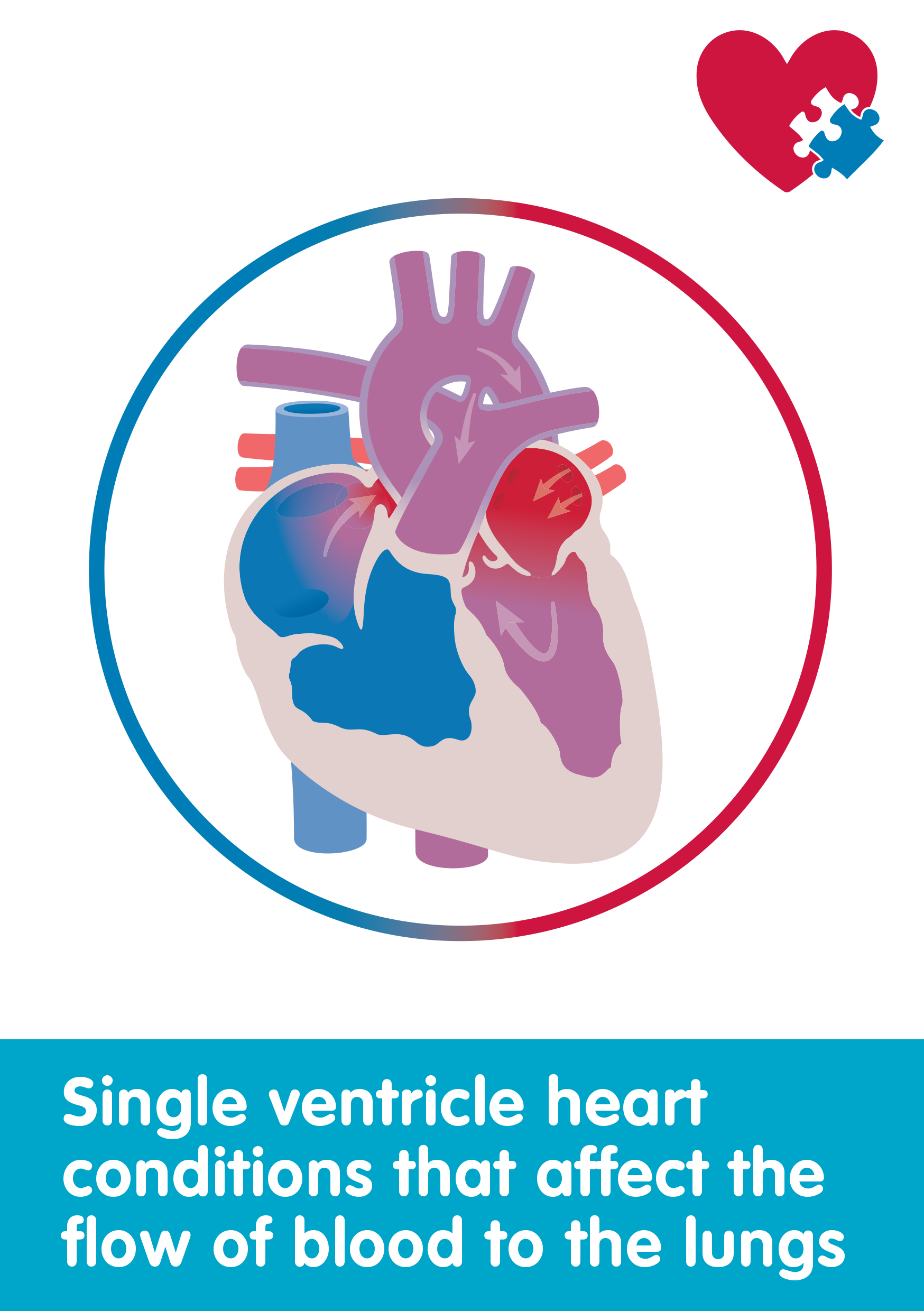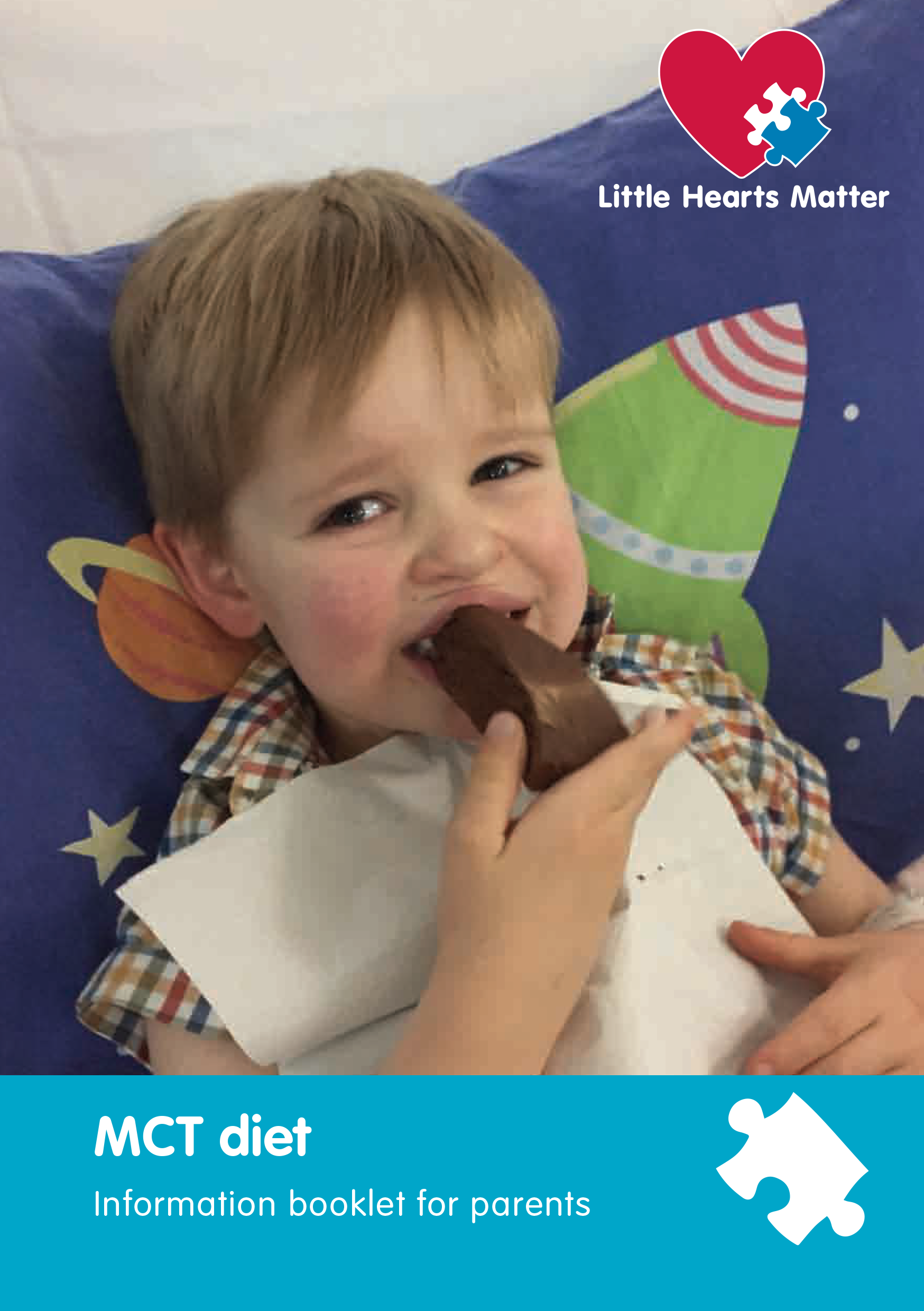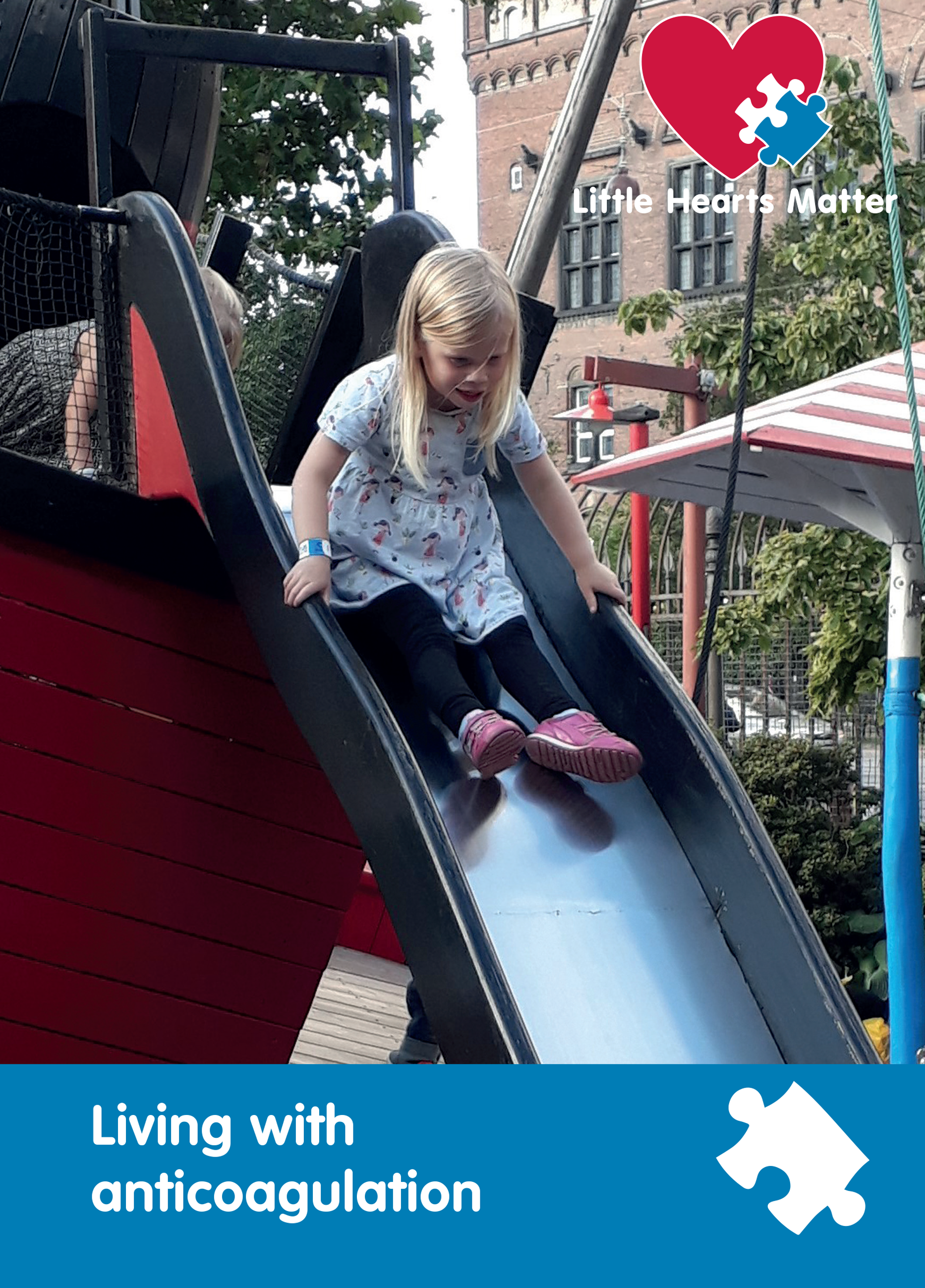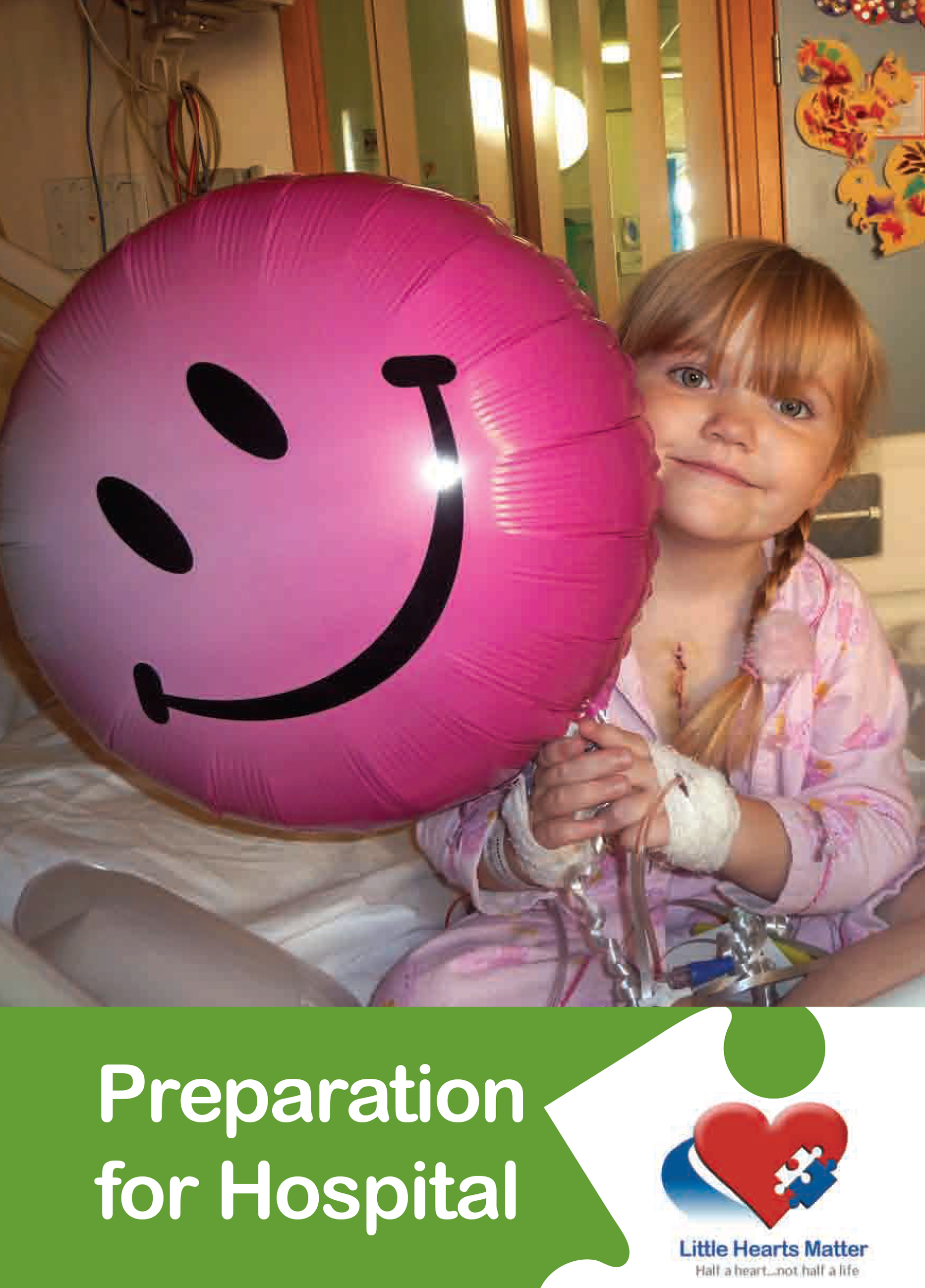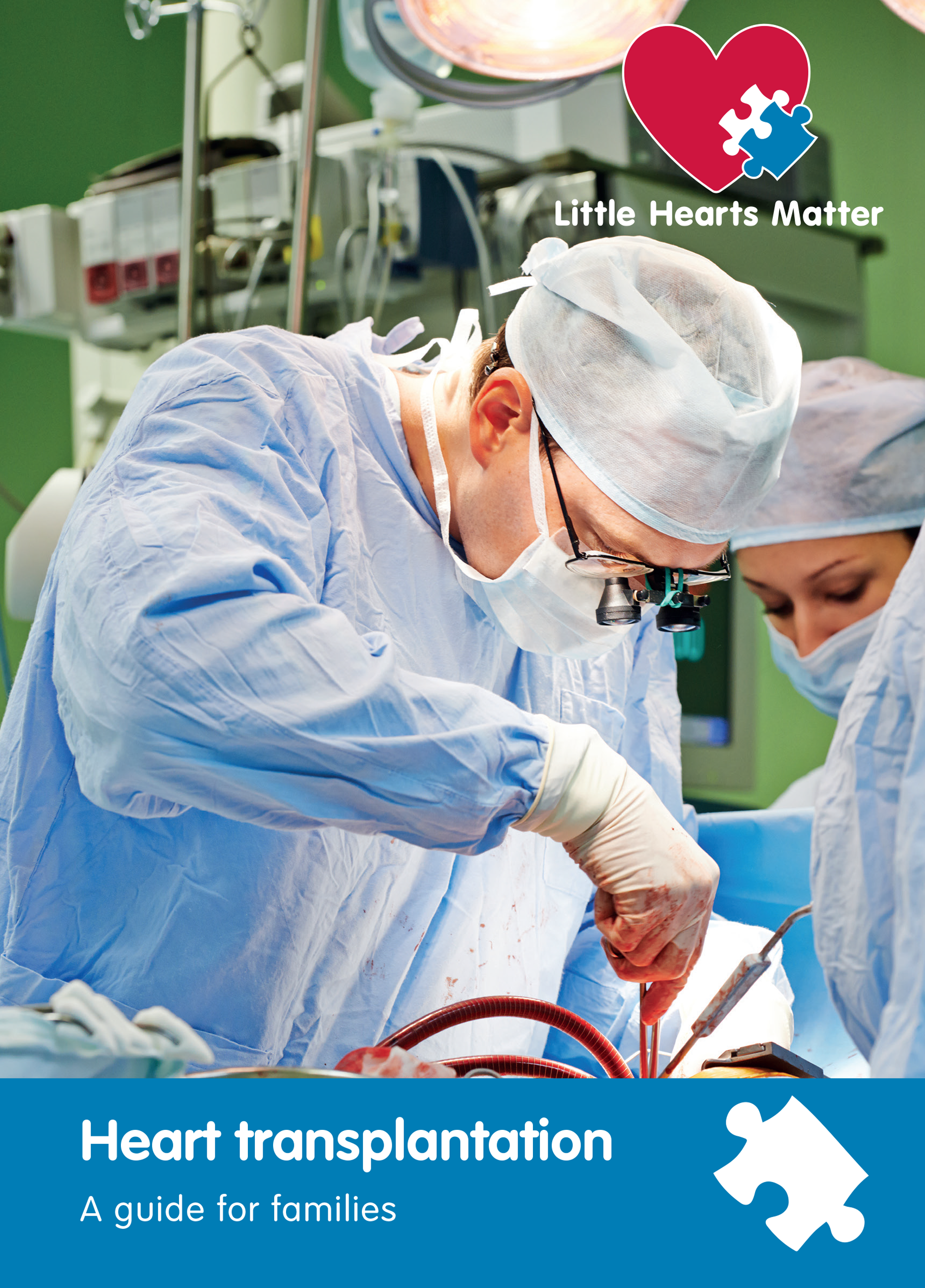Conditions Publications
New for 2022 – Left Sided Conditions Booklet
Discovering that your child has a complex heart condition is often frightening and confusing. Very few people have an understanding of what a complex heart condition means. This booklet has been written to help explain the diagnosis of a single ventricle heart condition and to set out the sorts of palliative (treatable but not curable) treatment that might be available if the condition allows. It has been written to support the information given to you by your medical team.
New for 2022 – Single ventricle heart conditions that affect the flow of blood to the lungs Booklet
Discovering that your child has a complex heart condition is often frightening and confusing. Very few people have an understanding of what a complex heart condition means. This booklet has been written to help explain the diagnosis of a single ventricle heart condition and to set out the sorts of palliative (treatable but not curable) treatment that might be available if the condition allows. It has been written to support the information given to you by your medical team.
The Fontan Procedure Booklet.
Children born with only one working pump in their heart (single ventricle heart disease) have a series of operations that aim to make the best use of the one pump that they have. The Fontan procedure, completion of the Fontan or Total Cavopulmonary Connection is one, and for many the last of the children’s planned operations. (For ease of description, all of the above names for surgery will be referred to as the Fontan).
The MCT Diet Booklet.
The MCT (Medium Chain Triglycerides) diet is a special diet which is sometimes required by children for a short period of time in hospital after heart or chest surgery or for a short period of time at home. It allows a special type of fat which is not absorbed into the lymph system. If your child requires this diet, the medical staff at your child’s hospital will advise you of the requirement, and the dietitian will help you to understand how to follow the diet at home, and when the diet is finished how to go back to your child’s usual diet. The dietitian will also provide recipes and food supplements as required.
Living with Anticoagulation
This booklet aims to equip parents, children and young adults with an understanding of why these medications to slow blood clotting are needed, how to manage it on a day-to-day basis and what the associated risks are. If you have any queries whilst reading the booklet, please talk to a member of your cardiac team. If you would like to find out more about other people’s experiences, please speak to Little Hearts Matter, who can put you in touch with other parents or young adults in similar situations.
Preparation for Hospital
Many families contact Little Hearts Matter for advice about how to prepare their children for the later stages of surgery or for a hospital admission for a cardiac catheter. When offering any suggestions it is important to remember that every child copes with hospital admission differently, as do their families: some will enter the whole experience positively, understanding that surgery may not be nice but that they will be able to do more once they have recovered. Others will be anxious about admission, the environment, medical tests and machines. There is no doubt that some preparation before admission helps most children gain a sense of control through understanding.
Transplantation
This booklet provides an introduction to transplantation. The aim of the publication is to help anyone facing this treatment to gain a greater understanding of the assessment process, surgery and an overview of the risks involved. It will not give you an answer to every question you have about your child. These in-depth questions will be answered by the transplant team during transplant assessment.
